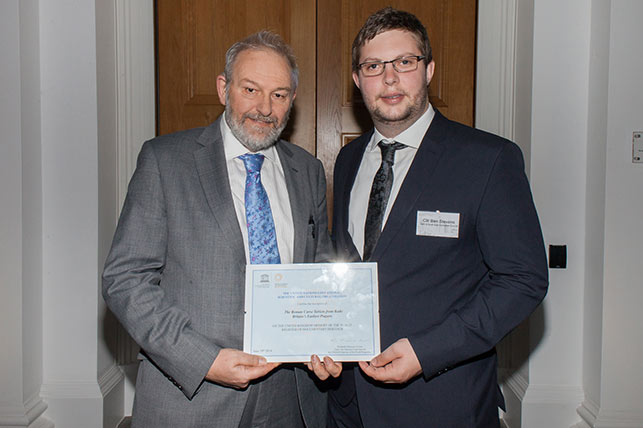Bath’s famous Roman curse tablets have recently been added to the UNESCO Memory of the World register of outstanding documentary heritage.

The 130 Roman curse tablets can be seen at The Roman Baths, which is managed by Bath & North East Somerset Council.
They are the personal and private prayers of 130 individuals inscribed on small sheets of lead or pewter, and cast into the hot spring at Bath, and date from the 2nd-4th century AD.
The earliest known surviving prayers to a deity in Britain, they are messages in Latin to the Roman goddess Sulis Minerva, from people who had suffered an injustice, asking for wrongs to be put right and for revenge.
The tablets are extremely difficult to read and translate and some are quite fierce, such as the person who, seeking revenge for theft of a bronze vessel, asks that it be filled with the blood of the thief.
One curse was written in British Celtic, the only text known to survive in that language. Another tablet contains the earliest known use of the word ‘Christian’ in Britain.
The curse tablets are the only objects from Roman Britain to have been inscribed on the UNESCO Memory of the World UK register, which aims to raise awareness of some of the UK’s exceptional documentary riches.
They were one of nine new inscriptions to the register and they join the 41 already listed.
The award was made on Thursday 19th June at a ceremony in Edinburgh, organised by the Scottish Council on Archives and hosted by Lloyds Banking Group.
Cllr Ben Stevens, Bath & North East Somerset Council’s Cabinet member for Sustainable Development (LibDem, Widcombe) accepted the certificate of inscription on behalf of the Council.
He said: “The decision by UNESCO to inscribe the Roman curse tablets from Bath on the Memory of the World register reflects the very special nature of this collection, and is another reason for local people to take pride in the exceptional quality of our local heritage here in Bath & North East Somerset.”
UNESCO established the Memory of the World (MoW) Programme in 1992.
The programme vision is that the world’s documentary heritage belongs to all, should be fully preserved and protected for all and, with due recognition of cultural mores and practicalities, should be permanently accessible to all without hindrance.



